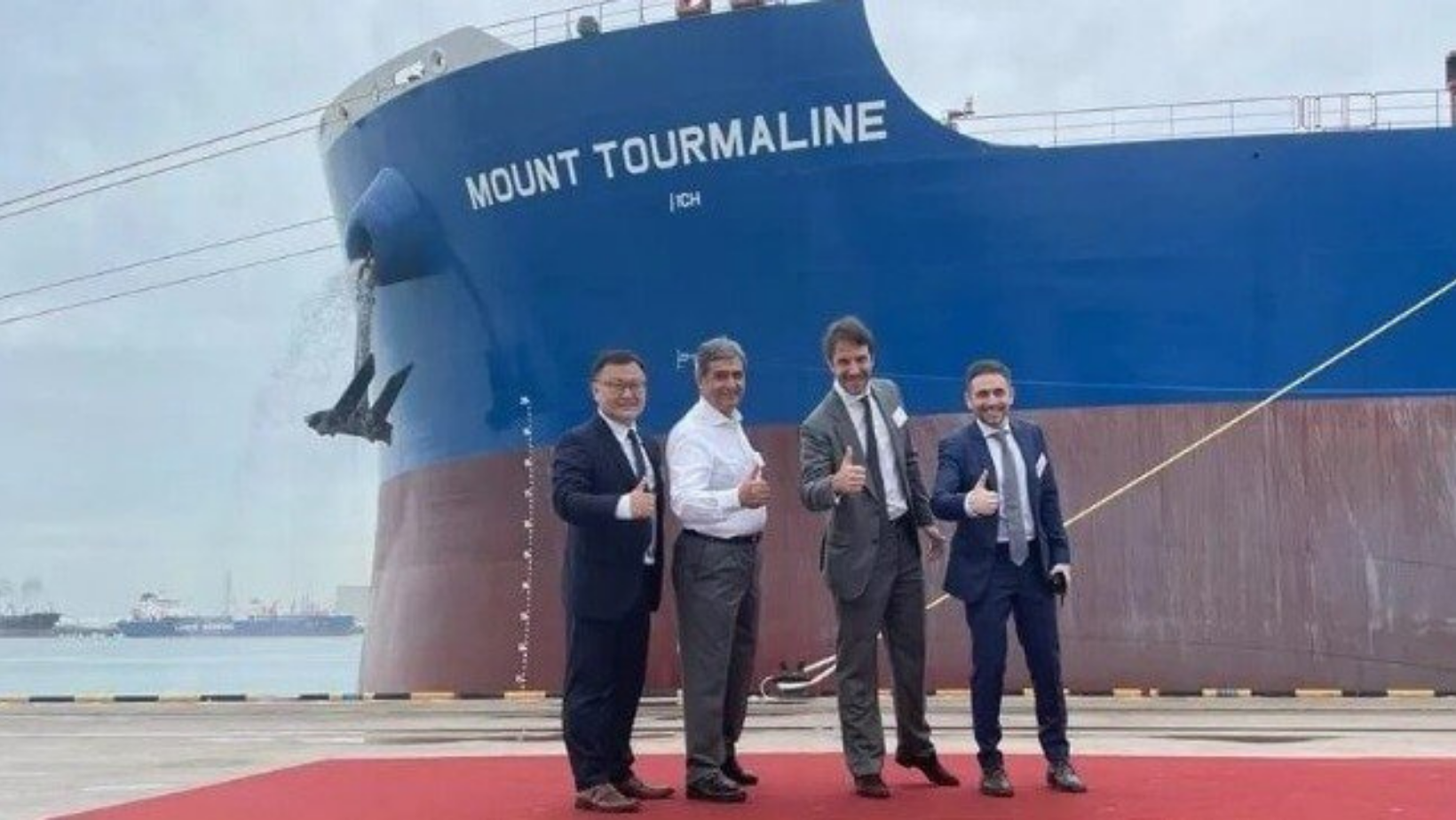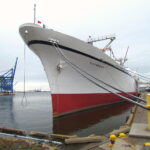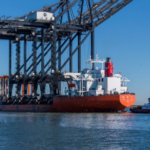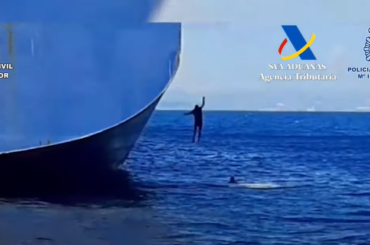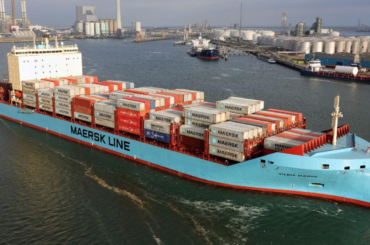BHP Billiton, the world’s largest mining company, has welcomed the arrival of the Mt. Tourmaline, the world’s first LNG-fueled Newcastlemax bulk carrier. BHP has contracted five LNG-fueled Newcastlemax bulk carriers from Eastern Pacific Shipping (EPS) for five years to transport iron ore between Western Australia and Asia.
The 209,000 dwt vessel is the cleanest and most efficient in the dry bulk shipping fleet, according to BHP, and is IMO 2030 compliant eight years ahead of schedule.
Mt. Tourmaline arrived at Jurong Port in Singapore for her first LNG bunkering operation. It was handled by the FueLNG Bellina, Singapore’s first LNG bunker tanker. FueLNG is a joint venture between Shell Eastern Petroleum and Keppel Offshore & Marine that operates the facility. The vessel will depart after LNG bunkering for iron ore loading operations at Port Hedland, Western Australia.
“Today’s historic LNG bunkering is further evidence that the industry’s energy transition is in full swing. These dual-fuel LNG Newcastlemax vessels are a world first, but more importantly, they represent a culture shift in shipping and mining,” said Cyril Ducau, EPS CEO.
When compared to a conventionally fueled voyage, BHP expects LNG-fueled vessels to cut GHG emissions intensity by more than 30% every voyage. They will help the corporation meet its 2030 goal of supporting a 40 percent decrease in the emissions intensity of its chartered shipping of its products.
The mining giant’s aims to become carbon neutral include taking delivery of the LNG-fueled bulk ship. BHP took part in the first marine biofuel testing aboard an ocean-going bulk vessel, which took place in Singapore last year.
BHP plans to reduce GHG emissions to zero within its operations by 2050 (Scope 1), and to collaborate with customers and suppliers to help them reduce their own emissions (Scope 2 and 3). Its overall reported GHG emissions inventory was 418.7 million tonnes CO2 equivalent last year (CO2-e). The company’s maritime carriage of its products accounted for around one percent of all worldwide shipping emissions as one of the world’s largest dry bulk charterers.

